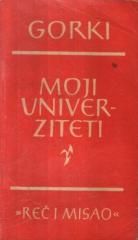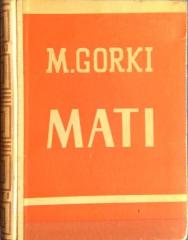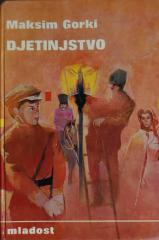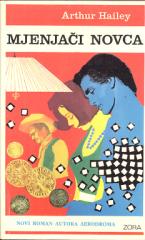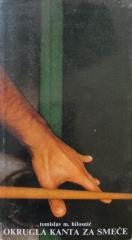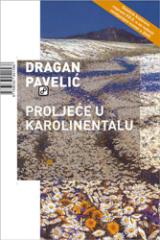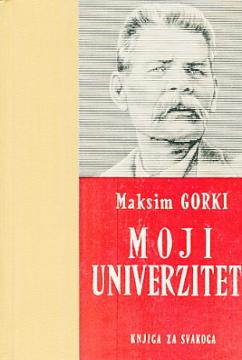
Moji univerziteti
Autobiographical trilogy - Childhood, In the world, My universities. Judging by some of his letters and works, Gorki conceived this trilogy as early as 1893 and wrote it from 1913 to 1923.
„Meine Universitäten“ ist der dritte Teil von Maxim Gorkis autobiografischer Trilogie, erschienen 1923 (serbische Ausgabe 1962). Das Buch verfolgt das Leben des jungen Alexei Peschkow (Gorki), als er seine Heimatstadt Nischni Nowgorod verlässt und nach Kasan geht, in der Hoffnung, dort studieren zu können. Angesichts finanzieller Schwierigkeiten und der Unmöglichkeit einer formalen Ausbildung erkennt Alexei jedoch, dass seine wahren „Universitäten“ die Lebenserfahrungen sind, die er durch Arbeit, Begegnungen mit unterschiedlichen Menschen und Selbststudium erlangt.
In Kasan arbeitet Alexei in verschiedenen Berufen, vom Gepäckträger bis zum Bäckergehilfen, und lebt in ärmlichen Verhältnissen, umgeben von Randgruppen, Arbeitern und Intellektuellen. Das Buch beschreibt seine Begegnung mit revolutionären Ideen, Literatur und Philosophie, die seine Weltanschauung prägen. Schlüsselfiguren wie Arbeiter, Bettler und Intellektuelle lehren ihn soziale Ungerechtigkeiten, aber auch die Stärke des menschlichen Geistes. Eine besonders wichtige Rolle spielt die Buchhandlung, in der Alexei Bücher entdeckt, die zu seiner wichtigsten Wissensquelle werden. Gorki thematisiert Armut, Sinnsuche und den Konflikt zwischen individuellen Bestrebungen und der harten Realität des zaristischen Russlands. Das Buch ist geprägt von seinem Kampf gegen die Verzweiflung, einschließlich eines Moments, in dem er Selbstmordgedanken hegt, aber auch von seinem Optimismus und seinem Glauben an die menschliche Widerstandskraft. Der Titel „Meine Universitäten“ unterstreicht symbolisch, dass wahre Bildung aus Lebenserfahrung und nicht nur aus formalen Institutionen entsteht.
Das Buch ist realistisch geschrieben, mit reichhaltigen Beschreibungen und tiefen psychologischen Einsichten, was es zu einer eindringlichen Darstellung der persönlichen Reifung und der sozialen Bedingungen jener Zeit macht.
Angeboten wird ein Exemplar
- Spuren von Patina
